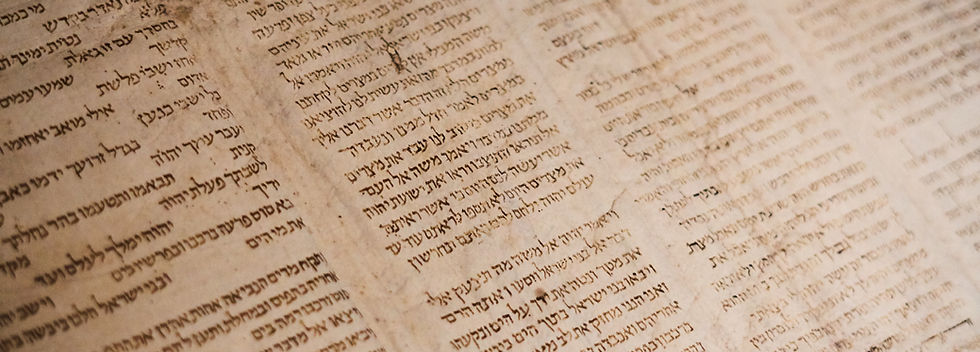
What is
Torah Pursuant?
Discover the Foundation:
Our Beliefs
To be Torah Pursuant is to draw near to God by walking in His ways—to let the Torah not merely inform our minds, but transform our hearts. It means allowing the Word of God to shape our values, our actions, and our vision for life. We are both Jews and Gentiles who cherish His commandments—not as a burden, but as a beautiful path of honoring the One who called us.
We believe the Torah was entrusted to Israel and extended to all who are grafted in by faith. As Gentiles, we do not seek to replace our Jewish brothers and sisters, but to walk alongside them in unity, each fulfilling the unique role God has given. Together, we uphold the eternal covenant and celebrate the divine design that brings many branches into one tree.
Our faith is a tapestry woven from the truths of the Torah, the teachings of Yeshua, and the enduring promises of the prophets. Each thread draws us closer to the Source of all holiness and joy. We live these truths not through empty rituals, but through lives made meaningful, whole, and set apart for God's purposes.
We invite you to walk this journey with us. Explore our beliefs, download a study guide, or support this mission so that others may discover the richness of a Torah-pursuant life.
Two Meanings to "Torah Pursuant"
What Does It Mean to Be Torah Pursuant?
To be Torah Pursuant is to seek intimacy with God by walking in His ways. It is a life shaped by the pursuit of His commandments, the imitation of Yeshua HaMashiach as revealed in the New Testament, and the indwelling guidance of the Ruach HaKodesh (Holy Spirit). This path bears the fruit of the Spirit—love, joy, peace, patience, kindness, goodness, gentleness, and self-control—and embraces the spiritual gifts entrusted to the Body.
A Hermeneutical Method of Pursuit
Pursuing the Torah is not about legalism or rigid adherence to tradition—it is a sacred dialogue across time. We begin with a mitzvah (instruction) from the Torah, tracing its expression through the New Testament, the insights of the great Rabbis and Church Fathers, and its historical development up to our day. In community, we seek the voice of the Spirit and adopt what the Ruach HaKodesh reveals as right and fitting for our lives. This is our way of fulfilling Torah—not to earn God’s love, but to love God in the way He desires to be loved: through faithful obedience.
The Excluded Middle: Navigating Faith in a Post-Christian, Post-Jewish World
In our generation, many feel displaced—disconnected not from God, but from the systems of church and synagogue. Fewer fill the pews; fewer stand at the bimah. Yet beneath this decline lies a stirring: a longing to return to the foundations of faith without the constraint of inherited labels. Not fully Jewish, not fully Christian, we walk the path of the Excluded Middle—honoring the past, seeking the Messiah’s future, and finding belonging in a space that neither institution fully claims.
Terms to Know: Torah Observant, Messianic Jewish, and Torah Pursuant
These three streams flow from a shared wellspring—love for the Torah and devotion to the God of Israel—but they chart distinct courses.
Torah Observant
Torah Observant individuals follow traditional Jewish law (Halachah), embracing both the Written and Oral Torah. While often not recognizing Yeshua as the Messiah, they live within the rich rhythms of Jewish law as a sacred structure. As Gershom Scholem observed, Halachah is not merely law but divine architecture woven into daily life, binding community and Creator.
Messianic Jewish
Messianic Jews embrace the Torah and Jewish identity while affirming Yeshua as Messiah. They celebrate the feasts, observe Shabbat, and see in Yeshua the fulfillment—not the abolition—of God’s promises. As Darrell Bock notes, Yeshua’s life brings fresh depth to Torah observance, fulfilling prophecy while preserving Jewish continuity.
Torah Pursuant
The Torah Pursuant community stands apart. Rooted in the Torah and shaped by Yeshua, it does not fully conform to Jewish Halachah or mainstream Christianity. Instead, it journeys with Scripture, guided by prayer, tradition, and the Spirit. Drawing on the Tanakh, New Testament, Rabbinic wisdom, and Church history, Torah Pursuant believers seek understanding and application for today—believing the Messiah will one day clarify and correct all paths. As N.T. Wright affirms, faith shaped through Scripture, prayer, and community creates a dynamic, Spirit-led discipleship that holds both ancient text and future hope.
In practice: the Torah Observant may turn to a rabbi, the Messianic Jew to rabbi or pastor—but the Torah Pursuant turns to the Scriptures themselves, interpreted in Spirit and truth. They live with open hands, knowing that Messiah will one day reveal what was unclear.
A Shared Commitment, A Unique Calling
Each path seeks to honor God's commands and live by His Word. As Torah Pursuant followers, we walk together in study, obedience, and humility—trusting that Yeshua will illuminate the way when He returns. This is our pursuit, our joy, and our covenantal calling.
Let’s Work Together
Feel free to reach out to us with questions or comments. Thank you.